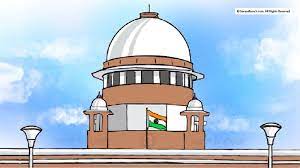(A) Limitation Act, 1963, Section 29; Article 58, 65 – Limitation – Settlement deed – Suit for declaration – Whether Gopalakrishnan’s suit for declaration based on the First Settlement Deed, eventually filed in the year 1993 barred by limitation? –Held that a reversioner ordinarily must file a suit for possession within 12 years from the death of the limited heir or widow – It is after the death of Pavunammal, that the reversioner, or in this case the heir of the reversioner (Gopalakrishnan) ought to have filed the suit – Suit for declaration was filed in 1993 – This implies that the cause of action to seek any other declaration i.e. a declaration of Gopalakrishnan in the property, should have arisen only in the year 1990 – Nothing on record to show any cause of action having arisen at this point in time – The possible causes of action would be at the time of the Second Settlement Deed (1952) or Munusamy’s deed of settlement in favour of Pavunammal(1976) or at the time of Pavunammal’s vesting of the property in favour of Vasantha (1993) or at the death of Pavunammal (2004) where apart from declaration, he ought to have sought the relief of possession as well -No such possible occasion, a declaration was sought, much less within the stipulated period of three years – The suit, the subject matter of appeal is a suit for declaration simpliciter and not possession – So, the possession still rests with heir of Pavunammal – The twelveyear period stood expired in 2016 (with the death of Pavanummal in the year 2004) therefore, the suit is barred by limitation, which was filed in 1993. (Para 17 and 23)
(B) Specific Relief Act, 1963, Section 34 – Specific Performance – Suit for declaration – Whether the suit for declaration simpliciter was maintainable in view of Section 34 of the SRA, 1963? – Plaintiff was aware that the appellant herein was in possession of the suit property and therefore it was incumbent upon him to seek the relief which follows – Plaintiff himself has stated that defendant no. 1 was in possession of the subject property and had sought to transfer possession of the same to defendant no.2, thereby establishing that he himself was not in possession of the subject property – After the death of the life-estate holder in 2004, there was no attempt made by the original plaintiff to amend the plaint to seek the relief of recovery of possession – It is settled law that amendment of a plaint can be made at any stage of a suit, even at the second appellate stage – Issue answered in the favour of the Appellants herein and against the Respondent. (Para 33 and 34)
(C) Adverse possession – Proof of – Plea of adverse possession is not a pure question of law but a blend of fact and law – Therefore, a person who claims adverse possession should show :
(a) on what date he came into possession;
(b) what was the nature of his possession;
(c) whether the factum of possession was known to the other party;
(d) how long his possession has continued; and
(e) his possession was open and undisturbed.
A person pleading adverse possession has no equities in his favour – Since he is trying to defeat the rights of the true owner, it is for him to clearly plead and establish allfacts necessary to prove his adverse possession. (Para 20)
(D) Limitation Act, 1963, Section 27 – Specific Relief Act, 1963, Section 34 – Limitation – Suit for declaration – Held that the lapse of limitation bars only the remedy but does not extinguish the title – Reference may be made to Section 27 of the Limitation Act – This aspect was overlooked entirely by the High Court in reversing the findings of the Courts below – It was not justified for it to have overlooked the aspect of limitation, particularly when deciding a dispute purely civil in nature – Impugned Judgment of High Court fails scrutiny at the threshold stage itself, i.e. on limitation as also maintainability of the suit – Judgment of the Trial Court in O.S. No. 726 of 1993 as also the First Appellate Court in S.C. Appeal Suit 47/99 FTC-II Appeal Suit 113/2002 which dismissed the suit of Gopalkrishnan on the grounds of limitation cannot be faulted with. (Para 32 and 35)
SUPREME COURT OF INDIA
2024 STPL(Web) 95 SC
[2024 INSC 109]
Vasantha (Dead) Thr. Lr. Vs. Rajalakshmi @ Rajam (Dead) Thr.Lrs
Civil Appeal No. 3854 of 2014-Decided on 13-2-2024
https://stpllaw.in/wp-content/uploads/2024/04/2024-STPLWeb-95-SC.pdf







